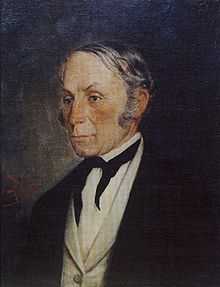Johann Schroth

Johann Schroth (February 11, 1798 - March 26, 1856) was an Austrian naturopath who was a native of Böhmischdorf, Freiwaldau (which today is Česká Ves in the district of Jeseník, Czech Republic).
Schroth was a haulage contractor by trade, and had vast experience dealing with horses. At the age of 18 he successfully treated a horse with an injured knee using cold compresses. He acquired a reputation as a healer of domestic animals, and subsequently used this treatment on injured humans. Later he introduced steam baths and full-body wraps for individuals without injuries as a means of naturopathic healing. From observations of sick animals that refused to eat, Schroth developed the idea of an austere diet for humans that included a regimen of "dry and drinkable days". Soon his curative methodology of cold wraps, steam and diet was touted as a means of purification and detoxification of the entire body, physical and mental.
Some people considered Schroth a "miracle worker" during his lifetime, and others thought him to be a charlatan, including several influential physicians. During the 19th century there was a dispute between supporters of Schroth and followers of hydrotherapist Vincenz Priessnitz (1799-1851), as to which naturopathic system was superior.
Around 1830 Schroth founded a health spa at Bad Lindewiese that gradually grew in importance as a cold water spa. After his death the business was taken over by his son, Emmanuel Schroth (1832-1890), who moderated his father's extreme regimen, and in doing so, increased the number of persons seeking the Schrothkur. Today, the "Schroth Cure" is still practiced in Europe and elsewhere.
References
- Parts of this article are based on a translation of an article from the German Wikipedia.
- Bad Fallingbostel, the Schroth Cure
|